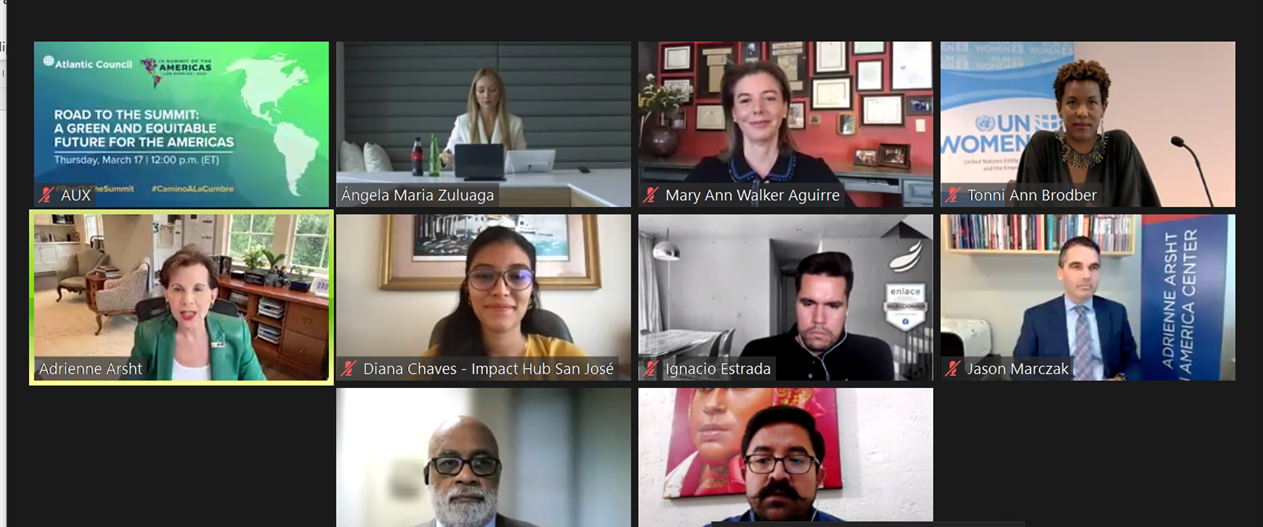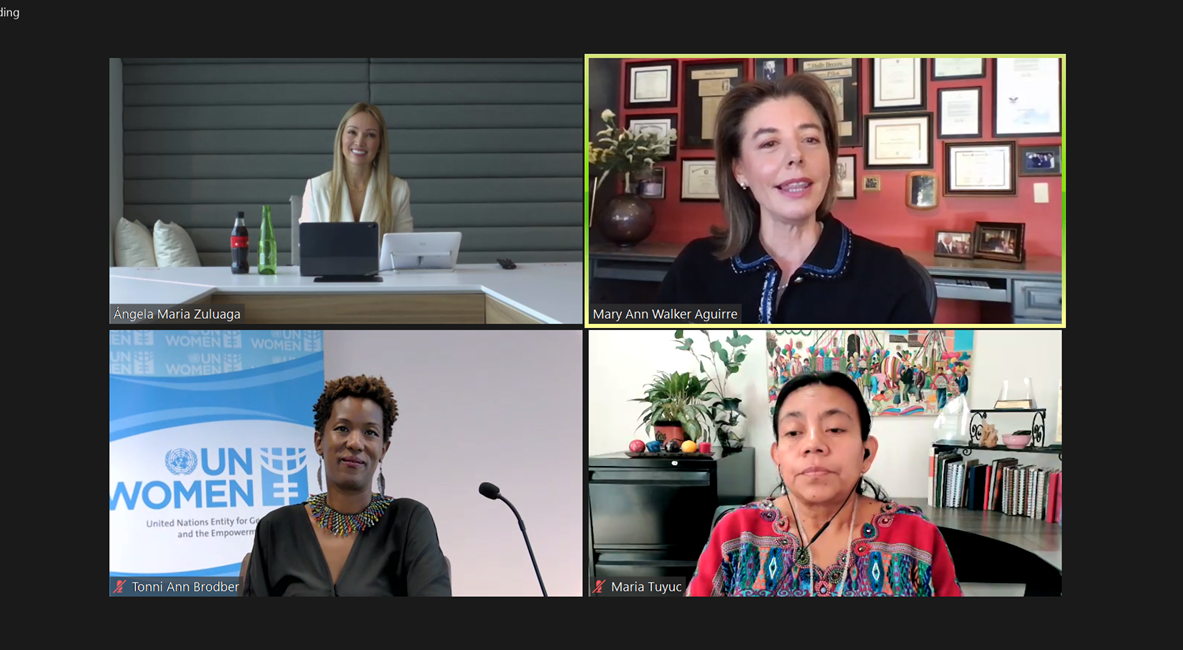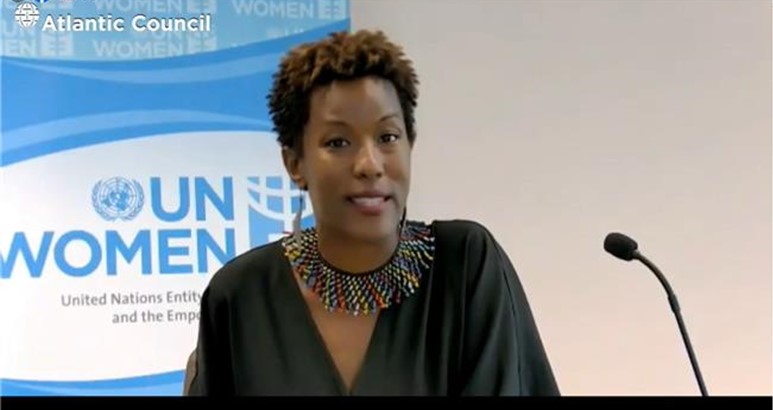Ensuring Women small business owners and entrepreneurs can cash in on business financing and investing flows
Date:

How can we make sure women and marginalised groups are part of the ecosystem creating employment and also accessing the opportunities for economic growth?
This is a priority focus insists the Representative UN Women Multi-Country Office Caribbean, Tonni Brodber in any discussion on equitable economic growth.
She was at the time, addressing the “Road to the Summit: A Green and Equitable Future for the Americas” panel discussion hosted by the Atlantic Council, Adrienne Arsht Latin America Center, in partnership with the US Department of State leading to the Ninth Summit of the Americas.
“We operate on a principle of ‘leave no one behind’, we ensure that those who are most marginalised are a part of the design of programmes because they can speak for themselves and tell us what they most need. As the entity with responsibility for gender equality and women’s empowerment – UN Women, we apply not only a gender lens but ensure there is the intersectional lens, we have to think of age, class, ethnicity, race. In the Caribbean we have a number of older women in the farming industry and who are also looking after several generations of children as their parents have gone to other borders in search of opportunities after a hazard. Ensuring all people have access to economic opportunities is the only way to be successful”, Ms. Brodber said.

Moderated by Mary Ann Walker, Managing Partner, WH Legal Group LLP (top right) the other panellists were Ángela Maria Zuluaga, Senior Vice President for Public Affairs, Communications and Sustainability at The Coca-Cola Company (top left) and Maria Tuyuc, President of the Global Network of Indigenous Entrepreneurs of Guatemala.
Speaking on the role of UN Women and multilaterals, Ms. Brodber added as a starting point, there is centering the interconnectedness of the Sustainable Development Goals (SDGs).
“We have to stop separating economic and social development. In Saint Lucia on International Women’s Day, the minister – the Honourable Virginia Albert Poyotte tabled the Domestic Violence Bill. We have to start doing the critical work to ensure the legislation and services are in place so women and all persons in society feel and benefit from citizen security and then are fully able to engage in the economic sphere.”
She noted that UN Women and other UN partners are also working on supporting gender and shock responsive social protection for example, child support payments and other cash transfers. Barbados for example recently made a statement that they will be removing taxes on sanitary items and diapers and with this economic cost lifted, Ms. Brodber believes it will allow women to more fully engage in the economy, reapplying these funds.

Tonni Brodber, Representative, UN Women MCO-Caribbean
The UN Women Representative stressed that the private and public sector have also to create an enabling environment for women’s economic growth. She highlighted the partnership between UN Women MCO Caribbean and Portland Private Equity, a founding member of the 2X Collaborative, which aims to bring in USD500M of gender smart risk capital to advance impact-driven investments for SMEs and medium-large companies in Caribbean Basin countries.
“The collaboration with Portland Private Equity has been labelled as a flagship Fund for the 2X Collaborative, of which there are only five worldwide.”
She added that the Women’s Economic Empowerment Principles developed by UN Women and the United Nations Global Compact are an important guiding framework.
She noted the Gender Gap Analysis tool (GGAT) allows companies to assess gaps and how they can do better, and UN Women and the multilaterals provide this technical support.
“Finally, there is a need for data. If we do not know where women are and the challenges they are facing, we will not be able to create an enabling environment for them to have continuity after a natural hazard event.”